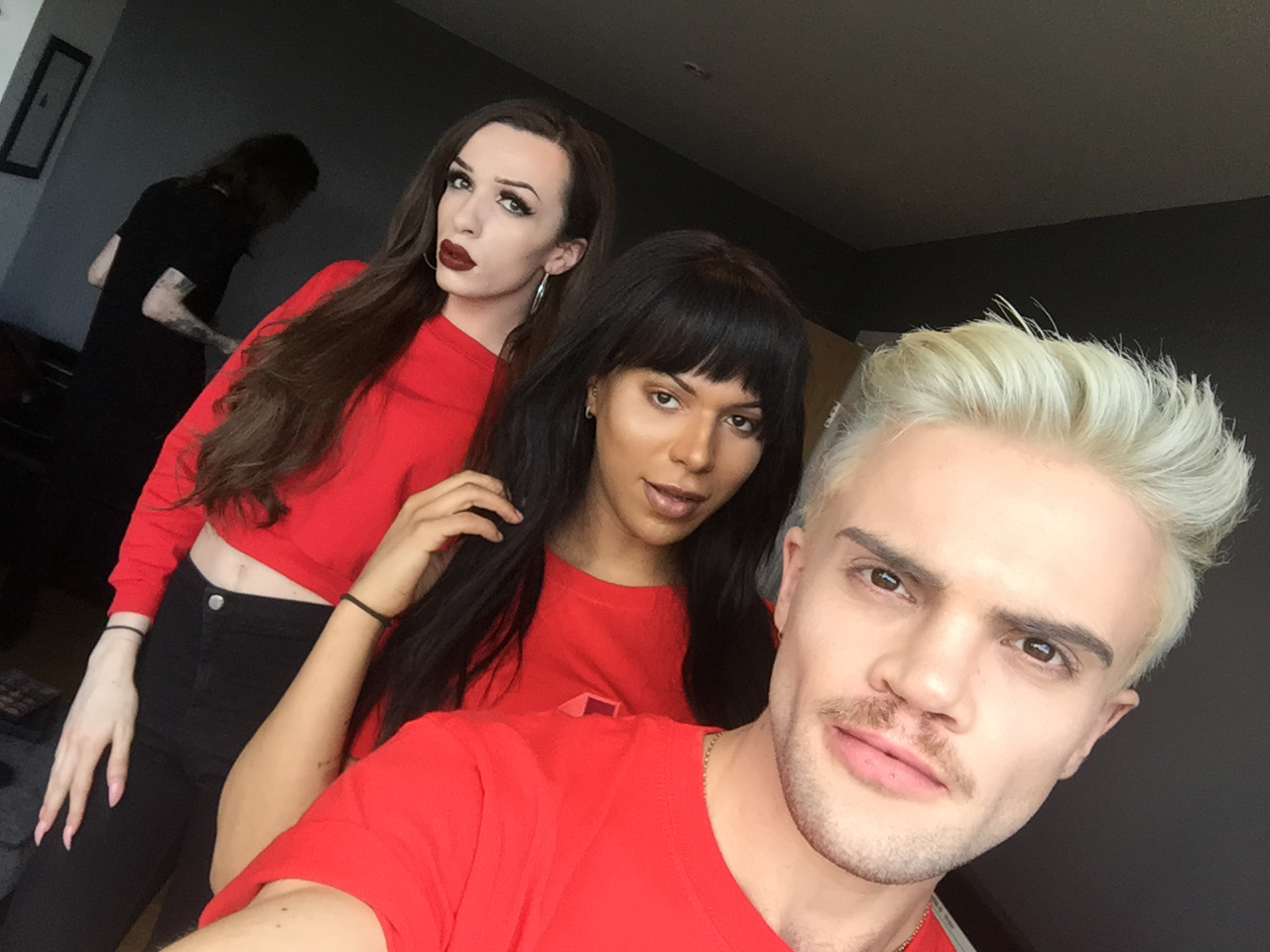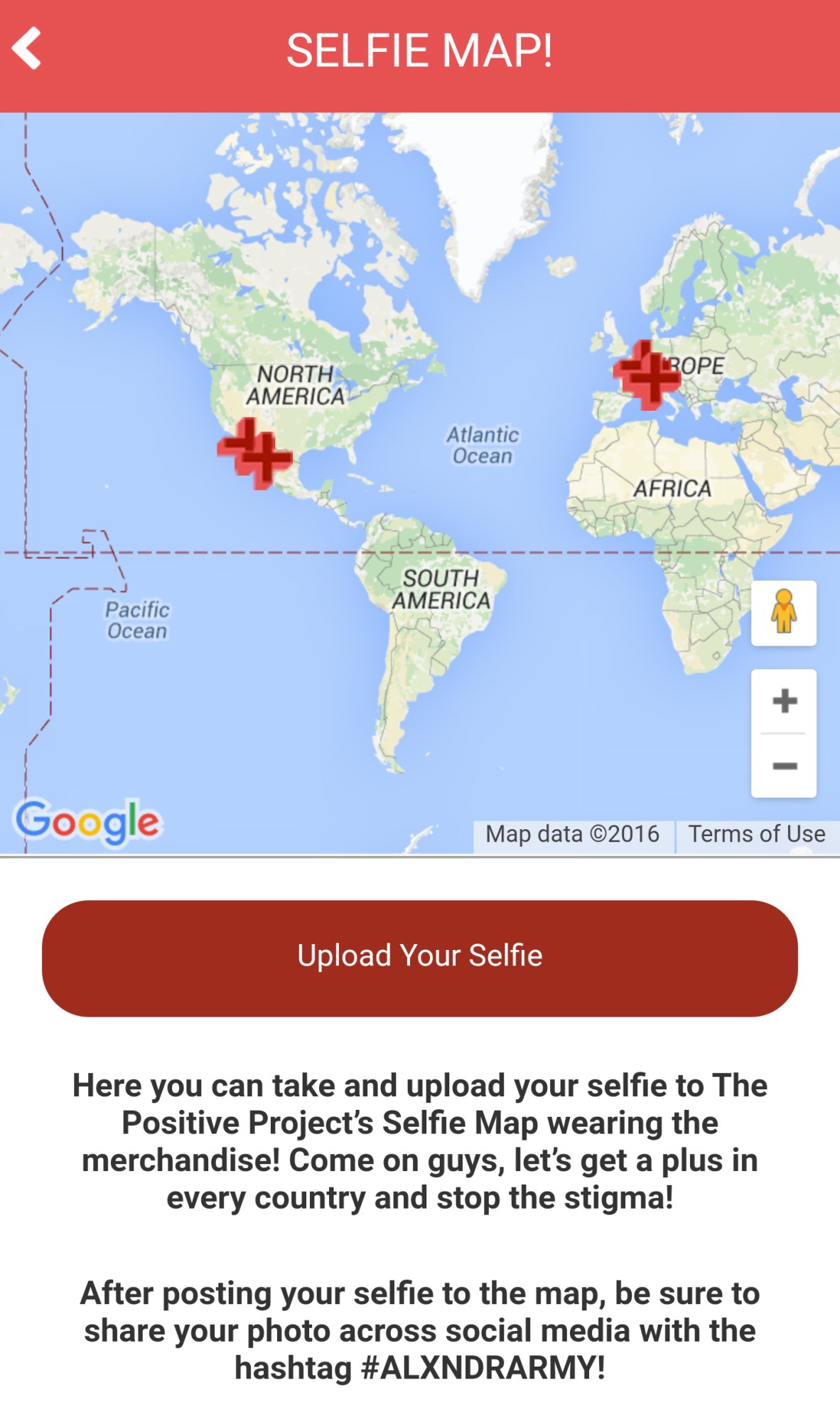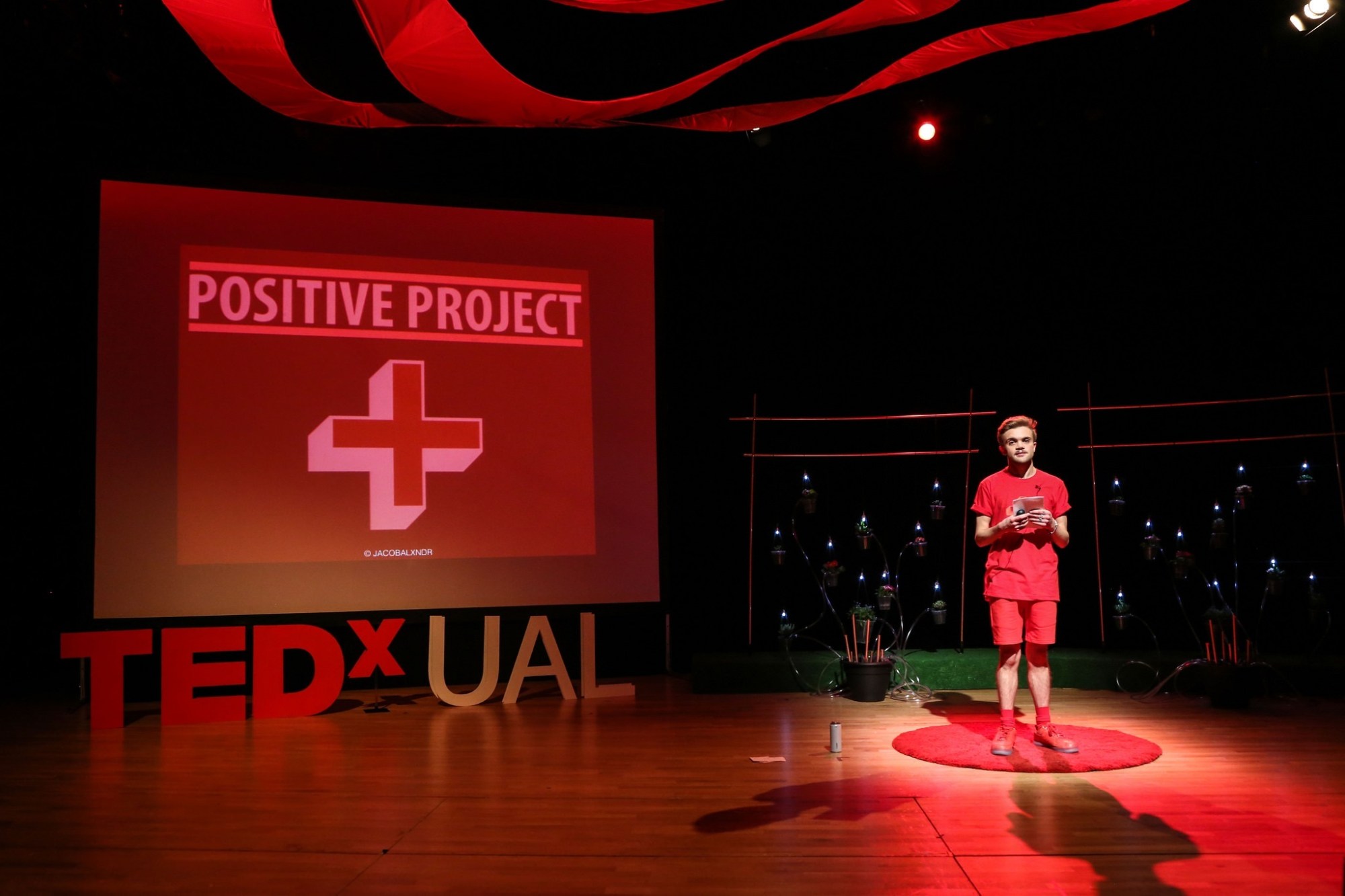After being diagnosed with HIV last September, London College of Fashion student Jacob Alexander has set out to not only fight the stigma from others around HIV, but also impact the lives of the people dealing with the condition. Standing in front of a crowd wearing his self-designed collection, Jacob publicly announced his diagnosis in a powerful TEDxUAL talk, giving an insight into his personal experience and how his new project can impact the lives of others like himself. Combining fashion and technology, The Positive Project app provides a safe space for those with HIV. Launching alongside a hand crafted T-shirt designed by Jacob, users are encouraged to post a selfie on the app wearing the tee to create a much-needed sense of community and belonging, breaking down any barriers of shame or embarrassment that young people living the HIV should not have to deal with. The app is also designed to build awareness, acting as a source of information and guidance so those with the disease, or others who want to know more, can research everything they need to know. We caught up with Jacob to discuss the project further.

Why did you decide to start the Positive Project?
I was diagnosed with HIV on my 22nd birthday last year and was struggling coming to terms with my actual diagnosis. Luckily my mom and dad were there for me, but I actually lost quite a few friends, including my best friend who I lived with. I was slowly realizing that a lot of people were asking me what appeared to me to be crazy, uneducated questions, but I couldn’t be mad at them because they were only asking to the limit of their education. Even when I was talking about HIV with my boyfriend in public, I noticed people flinched away. So I just thought ‘right, HIV needs to make the headlines again.’ When I gave my TedTalk I asked people in the audience to name three HIV charities and a lot of people couldn’t even think of one. Someone told me I was going to be the next Bob Geldof, which was the most lovely comment I’ve ever received, but it make me think ‘Jesus Christ, I’ve not heard anything from Bob Geldof or Live Aid since when I was a kid.’ It really has been forgotten about. I was going through quite a dark time struggling with my diagnosis, and there was an advert in my University to apply to do a TedTalk. I thought ‘how can I group everyone together to get a positive spin on HIV?’ People were saying ‘Oh, I’m sorry’ after I told them I had it, but it doesn’t define me. I am not HIV. I want to get people together and change their attitude towards HIV.
Tell us a bit about the app you’ve developed.
The mentality behind my app is to keep the wellbeing of people living with HIV to the best that it can be. At the moment, there’s a lot about preventing or medicating it, but it’s almost like you get forgotten about once you get to the medication stage. Firstly, I wanted to create a t-shirt that was simple and effective, but I didn’t want just a cheap screen-printed shirt — that’s boring. I went to Hand and Lock, an embroidery studio and the world’s finest hand embroiders. They loved the idea and thought it was something that needs to be reawakened and make the news again. They were fully on board and sponsored the project, creating all the embroidery, which has been really cool. Once you receive your Positive Project parcel, you take a selfie through my app and post it onto the world map and it’s displayed as a little plus, with the idea being to spread the right kind of positivity around the globe. You can also look up treatment centers where you can go and get checked, get directions to clinics and read about HIV and the Positive Project. Furthermore, I’ve created a space on the app for transgender people, as I feel it’s important that there is support for everyone.
How’s the journey been for you and your boyfriend?
We were friends and got together after I was diagnosed. He’s been there for me throughout the whole thing and said to me from the start, ‘even if we don’t end up together, I’m there for you’ and he still stands proudly by my side. He’s really supportive and has helped me a lot with the Positive Project, too.

What would you like people to understand about HIV that they might not know already?
In the app, I’ve written nearly a whole dissertation worth of information about HIV. There’s nearly 6000 words in there so that if anyone, for example, started to date somebody who has HIV, would be able to go onto my app and answer all the questions they have or ask me anything so that they don’t have to ask their new partner uneducated questions. There are so many misconceptions, such as the virus to be able to be caught through touch. My old flatmate used to clean all the glasses and bought a mini fridge for his room so I couldn’t ‘infect his food,’ which was ridiculous. It’s not just a gay disease either; it’s passed on through sex and many more women in the world have HIV than men. 1 in 7 men in London have it and 5,746 people are diagnosed each day. A lot of people asked me ‘oh my god, are you going to die from it?’ which is obviously not true. I got on medication and about a month or so after I’d adapted to it, it’s almost like you forget you’ve got HIV. It’s amazing the medication that’s out there today.
What’s the best thing people who have friends or family with HIV can do to support them?
Make sure they never feel alone, because that’s the worst thing. I get a bit emotional talking about it now because you do feel quite alone sometimes and you do feel like you’re different. So be there for them and make sure they get on medication, because it’s the best thing for them. None of this ‘let your body fight it by itself’ rubbish. The minute they are diagnosed, don’t let anybody tell them that that they can’t let people know. They should be able to tell everybody the minute you get it and everybody should accept it.
How do you think working with fashion has helped you bring the issue to the public eye?
I want to become a tonal designer that gives back. So every collection that I do to be a different color with different textures and shades. My first collection under my menswear brand JACOB ALXNDR is going to run alongside the Positive Project and is all red. I’ve decided I’m going to change all of the Positive Project colors to match my next collection, which will be shades of bone, raising money for people with bone cancer. Every time I do a collection I’m going to be including the Positive Project. I want to fill the map with loads of loads of selfies all for a good cause.
What changes do you think need to be made to reduce stigma around HIV?
People need to educate themselves on the virus. I’m not forcing this information on people, I’m offering the education and it’s up to them if they take it or not. If people who know someone who’s got HIV and they’ve got a million questions about it, they can read about it, which is the best way forward. I’ve also attached my face to the virus for a reason; there isn’t a face to HIV at the moment. There’s nothing in the news about HIV, there’s no current media, not even any shitty wristbands that raise a pound for HIV. There’s nothing. I want to become the spokesperson for HIV and change the world.
What is true love to you?
Transparency and acceptance.
The App is now live and free to download from iTunes.
Credits
Text Lula Ososki
